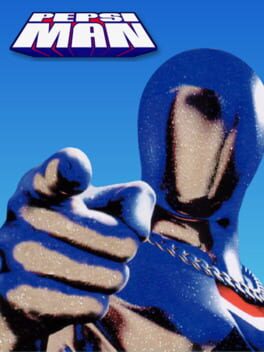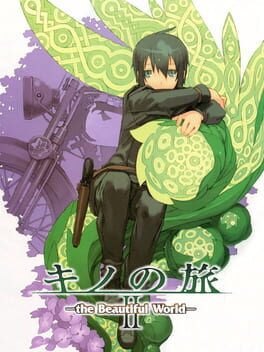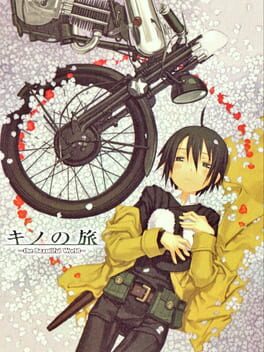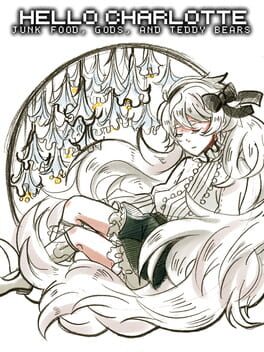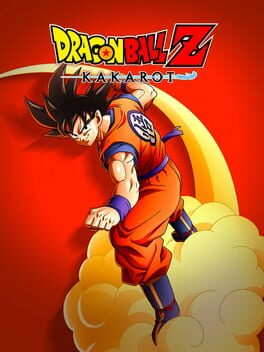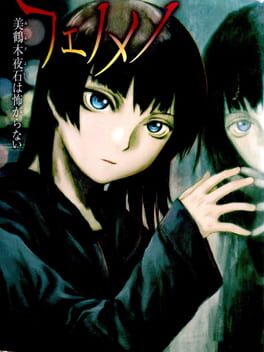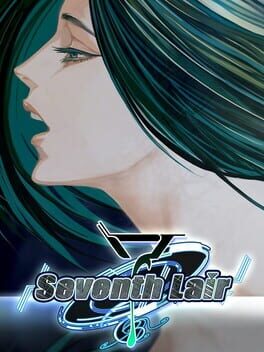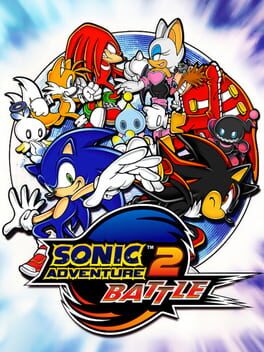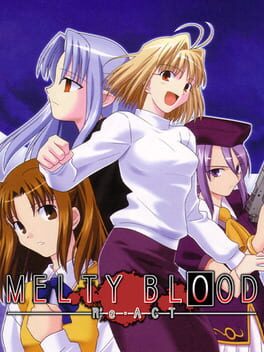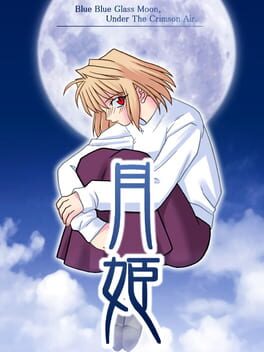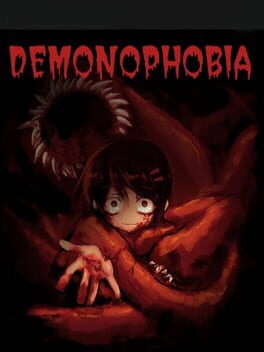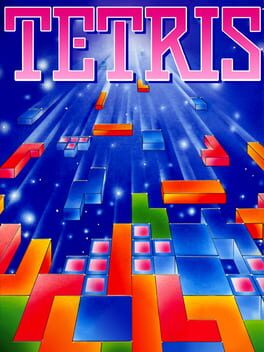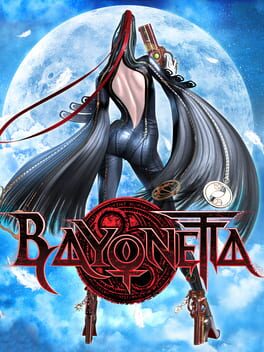1999
Will be posting this on both Kino No Tabi I and II's pages since it will mainly be an analysis of the series' themes and are pretty much interchangeable with each other.
The language barrier impedes most of consuming media that would attract us elsewhere. Most Visual Novels and Japan exclusive titles suffer the fate of being forever stuck in obscurity without the ability to even be translated. While some do manage to escape from Nihon hell thanks to fan translations or even full on localizations, the raw poetry of the words, the dancing of words and playfulness of entendres is lost in many instances either way.
Kino No Tabi is a series of light novels published in sparsity since the 2000s, dealing with the protagonist Kino and her talking motorcycle Hermes as they explore the vast world around them, only staying at countries for 3 days max to assess all there is about the land's culture, their practices and alike before leaving and exploring the next terrain.
I do feel that literature is the best art form to encapsulate the human condition. Due to the way we can explore multiple perspectives, narrate of scenery, topics and imaginary fields for the longest of times along with the powerful image formed into our minds without the need of visuals, a story can tell much without ever explicitly showing the cards at it's hands.
While Visual Novels tend to reach literature and theatrical releases a lot more than they do video games in terms of writing, many visual novels tend to be hit or miss exactly due to that, they either accept their enhancements given by the way of visuals and soundtracks, or fall short on properly utilizing it's own medium. Afterall, if I'm going to be stuck reading for the next few hours, you might as well aid the atmosphere with some tunes or do more than put a doodle with a few different expressions to emote for me.
This is where Kino shines. We've got a fantastic soundtrack to accompany us in our travels, a fully narrated game with different voices for each character, animatics and moving sceneries to illustrate the stories being told, all of that culminate in the most beautiful writing conceived about the mysteries of exploring what is in and outside of the mind.
Here is Kino, always pushing forward in order to know all there is in the world. A reserved young teenager who claims to be fascinated with how the world is not beautiful, therefore making it beautiful because of that instead of in spite of it. A neutral presence who will shake hands with the same arm she uses to shoot the heads of whoever comes between her and her journey. A literal vehicle between us and the end who is nowhere in sight at the same time that is imminent and all encompassing.
Did the segregation of lands derive from a societal collapse? Why is there such an abrupt change in structure and technology between every country? Why can Hermes and other vehicles talk with humans? Will Kino ever find a place to confide and be in peace? Why does the world is so chock full of inequality that so many conflicting messages can be shown to the point of the overall narrative seeming schizophrenic, yet never contradictory?
You might get a glimpse of all these questions and more as it's episodic philosophical themes explore said ventures, however you will be hard pressed to find any answers. Much like the best of literature, it leaves a blank space between author, reader and art for you to fully immerse and live with the thoughts and implications these tales will bring with them.
While there is currently no way to play this in english, all of the tales inside Kino No Tabi I and II are all readable and translated in past and future light novels who were translated by fans, and while some of said genius is lost in translation, I could not encourage you enough to read all of it. It is a shame that we might perhaps never be abtle to support an author as fantastic as Keiichi Sigsawa overseas without him ever knowing of how much his works has changed several of our lives for the best, but if the world is what you make of it, then perhaps some change and hope might be in our way, even if the future or the present show no signs of prosperity, hope does not need a reason to be, much like life, our stories, or the world itself.
The language barrier impedes most of consuming media that would attract us elsewhere. Most Visual Novels and Japan exclusive titles suffer the fate of being forever stuck in obscurity without the ability to even be translated. While some do manage to escape from Nihon hell thanks to fan translations or even full on localizations, the raw poetry of the words, the dancing of words and playfulness of entendres is lost in many instances either way.
Kino No Tabi is a series of light novels published in sparsity since the 2000s, dealing with the protagonist Kino and her talking motorcycle Hermes as they explore the vast world around them, only staying at countries for 3 days max to assess all there is about the land's culture, their practices and alike before leaving and exploring the next terrain.
I do feel that literature is the best art form to encapsulate the human condition. Due to the way we can explore multiple perspectives, narrate of scenery, topics and imaginary fields for the longest of times along with the powerful image formed into our minds without the need of visuals, a story can tell much without ever explicitly showing the cards at it's hands.
While Visual Novels tend to reach literature and theatrical releases a lot more than they do video games in terms of writing, many visual novels tend to be hit or miss exactly due to that, they either accept their enhancements given by the way of visuals and soundtracks, or fall short on properly utilizing it's own medium. Afterall, if I'm going to be stuck reading for the next few hours, you might as well aid the atmosphere with some tunes or do more than put a doodle with a few different expressions to emote for me.
This is where Kino shines. We've got a fantastic soundtrack to accompany us in our travels, a fully narrated game with different voices for each character, animatics and moving sceneries to illustrate the stories being told, all of that culminate in the most beautiful writing conceived about the mysteries of exploring what is in and outside of the mind.
Here is Kino, always pushing forward in order to know all there is in the world. A reserved young teenager who claims to be fascinated with how the world is not beautiful, therefore making it beautiful because of that instead of in spite of it. A neutral presence who will shake hands with the same arm she uses to shoot the heads of whoever comes between her and her journey. A literal vehicle between us and the end who is nowhere in sight at the same time that is imminent and all encompassing.
Did the segregation of lands derive from a societal collapse? Why is there such an abrupt change in structure and technology between every country? Why can Hermes and other vehicles talk with humans? Will Kino ever find a place to confide and be in peace? Why does the world is so chock full of inequality that so many conflicting messages can be shown to the point of the overall narrative seeming schizophrenic, yet never contradictory?
You might get a glimpse of all these questions and more as it's episodic philosophical themes explore said ventures, however you will be hard pressed to find any answers. Much like the best of literature, it leaves a blank space between author, reader and art for you to fully immerse and live with the thoughts and implications these tales will bring with them.
While there is currently no way to play this in english, all of the tales inside Kino No Tabi I and II are all readable and translated in past and future light novels who were translated by fans, and while some of said genius is lost in translation, I could not encourage you enough to read all of it. It is a shame that we might perhaps never be abtle to support an author as fantastic as Keiichi Sigsawa overseas without him ever knowing of how much his works has changed several of our lives for the best, but if the world is what you make of it, then perhaps some change and hope might be in our way, even if the future or the present show no signs of prosperity, hope does not need a reason to be, much like life, our stories, or the world itself.
Will be posting this on both Kino No Tabi I and II's pages since it will mainly be an analysis of the series' themes and are pretty much interchangeable with each other.
The language barrier impedes most of consuming media that would attract us elsewhere. Most Visual Novels and Japan exclusive titles suffer the fate of being forever stuck in obscurity without the ability to even be translated. While some do manage to escape from Nihon hell thanks to fan translations or even full on localizations, the raw poetry of the words, the dancing of words and playfulness of entendres is lost in many instances either way.
Kino No Tabi is a series of light novels published in sparsity since the 2000s, dealing with the protagonist Kino and her talking motorcycle Hermes as they explore the vast world around them, only staying at countries for 3 days max to assess all there is about the land's culture, their practices and alike before leaving and exploring the next terrain.
I do feel that literature is the best art form to encapsulate the human condition. Due to the way we can explore multiple perspectives, narrate of scenery, topics and imaginary fields for the longest of times along with the powerful image formed into our minds without the need of visuals, a story can tell much without ever explicitly showing the cards at it's hands.
While Visual Novels tend to reach literature and theatrical releases a lot more than they do video games in terms of writing, many visual novels tend to be hit or miss exactly due to that, they either accept their enhancements given by the way of visuals and soundtracks, or fall short on properly utilizing it's own medium. Afterall, if I'm going to be stuck reading for the next few hours, you might as well aid the atmosphere with some tunes or do more than put a doodle with a few different expressions to emote for me.
This is where Kino shines. We've got a fantastic soundtrack to accompany us in our travels, a fully narrated game with different voices for each character, animatics and moving sceneries to illustrate the stories being told, all of that culminate in the most beautiful writing conceived about the mysteries of exploring what is in and outside of the mind.
Here is Kino, always pushing forward in order to know all there is in the world. A reserved young teenager who claims to be fascinated with how the world is not beautiful, therefore making it beautiful because of that instead of in spite of it. A neutral presence who will shake hands with the same arm she uses to shoot the heads of whoever comes between her and her journey. A literal vehicle between us and the end who is nowhere in sight at the same time that is imminent and all encompassing.
Did the segregation of lands derive from a societal collapse? Why is there such an abrupt change in structure and technology between every country? Why can Hermes and other vehicles talk with humans? Will Kino ever find a place to confide and be in peace? Why does the world is so chock full of inequality that so many conflicting messages can be shown to the point of the overall narrative seeming schizophrenic, yet never contradictory?
You might get a glimpse of all these questions and more as it's episodic philosophical themes explore said ventures, however you will be hard pressed to find any answers. Much like the best of literature, it leaves a blank space between author, reader and art for you to fully immerse and live with the thoughts and implications these tales will bring with them.
While there is currently no way to play this in english, all of the tales inside Kino No Tabi I and II are all readable and translated in past and future light novels who were translated by fans, and while some of said genius is lost in translation, I could not encourage you enough to read all of it. It is a shame that we might perhaps never be abtle to support an author as fantastic as Keiichi Sigsawa overseas without him ever knowing of how much his works has changed several of our lives for the best, but if the world is what you make of it, then perhaps some change and hope might be in our way, even if the future or the present show no signs of prosperity, hope does not need a reason to be, much like life, our stories, or the world itself.
The language barrier impedes most of consuming media that would attract us elsewhere. Most Visual Novels and Japan exclusive titles suffer the fate of being forever stuck in obscurity without the ability to even be translated. While some do manage to escape from Nihon hell thanks to fan translations or even full on localizations, the raw poetry of the words, the dancing of words and playfulness of entendres is lost in many instances either way.
Kino No Tabi is a series of light novels published in sparsity since the 2000s, dealing with the protagonist Kino and her talking motorcycle Hermes as they explore the vast world around them, only staying at countries for 3 days max to assess all there is about the land's culture, their practices and alike before leaving and exploring the next terrain.
I do feel that literature is the best art form to encapsulate the human condition. Due to the way we can explore multiple perspectives, narrate of scenery, topics and imaginary fields for the longest of times along with the powerful image formed into our minds without the need of visuals, a story can tell much without ever explicitly showing the cards at it's hands.
While Visual Novels tend to reach literature and theatrical releases a lot more than they do video games in terms of writing, many visual novels tend to be hit or miss exactly due to that, they either accept their enhancements given by the way of visuals and soundtracks, or fall short on properly utilizing it's own medium. Afterall, if I'm going to be stuck reading for the next few hours, you might as well aid the atmosphere with some tunes or do more than put a doodle with a few different expressions to emote for me.
This is where Kino shines. We've got a fantastic soundtrack to accompany us in our travels, a fully narrated game with different voices for each character, animatics and moving sceneries to illustrate the stories being told, all of that culminate in the most beautiful writing conceived about the mysteries of exploring what is in and outside of the mind.
Here is Kino, always pushing forward in order to know all there is in the world. A reserved young teenager who claims to be fascinated with how the world is not beautiful, therefore making it beautiful because of that instead of in spite of it. A neutral presence who will shake hands with the same arm she uses to shoot the heads of whoever comes between her and her journey. A literal vehicle between us and the end who is nowhere in sight at the same time that is imminent and all encompassing.
Did the segregation of lands derive from a societal collapse? Why is there such an abrupt change in structure and technology between every country? Why can Hermes and other vehicles talk with humans? Will Kino ever find a place to confide and be in peace? Why does the world is so chock full of inequality that so many conflicting messages can be shown to the point of the overall narrative seeming schizophrenic, yet never contradictory?
You might get a glimpse of all these questions and more as it's episodic philosophical themes explore said ventures, however you will be hard pressed to find any answers. Much like the best of literature, it leaves a blank space between author, reader and art for you to fully immerse and live with the thoughts and implications these tales will bring with them.
While there is currently no way to play this in english, all of the tales inside Kino No Tabi I and II are all readable and translated in past and future light novels who were translated by fans, and while some of said genius is lost in translation, I could not encourage you enough to read all of it. It is a shame that we might perhaps never be abtle to support an author as fantastic as Keiichi Sigsawa overseas without him ever knowing of how much his works has changed several of our lives for the best, but if the world is what you make of it, then perhaps some change and hope might be in our way, even if the future or the present show no signs of prosperity, hope does not need a reason to be, much like life, our stories, or the world itself.
2022
Novetacle writes something unrelated to FataMoru Challenge (IMPOSSIBLE) (10 YEAR ANNIVERSARY SPEClAL)
The Original Fata Morgana is genuinely a masterpiece, creme de la creme, top 1 pieces of fiction I have ever experienced. Requiem For Innocence was a needed expansion of the original story that didn't quite fit on the main project. Reincarnation was pushing, especially with the change in art style and voice acting but whatever, I can excuse the milking of the series if it means I'll get a chance to see my favorite characters again, but this... This is just an embarrassing attempt at getting a quick buck from your fans.
Let me assure that despite sharing portraits and names with the characters from the IP, Seventh Lair has fuck all to do with Fata Morgana. It's a dogshit Sword Art Online-tier isekai story in the blandest generic JRPG Maker game featuring ear piercing chiptune music where the characters from the VN act as "actors" for the characters for 7th lair in a lazy attempt to not do anything from scratch. The allusions to the characters from the original VN do nothing but tarnish the legacy of the original and lessen both this story and the one before it. Jacopo is not an internet forum troll, Mell is not an NPC, Maria is not a transgender woman, and the fact she flat out tells Not-Michel that he would never understand the struggle of being born in the wrong body is so bafflingly hilarious that I can't fathom that this comes from the same team that gave us the original FataMoru, or the people who gave these characters better current-world personifications in Reincarnation.
Genuinely sad over giving this a low rating when it's related to my favorite IP, perhaps this could have been a touching story had it not been a complete asset flip with the most cliche, emotionally manipulative dialogue scenes ever made.
The Original Fata Morgana is genuinely a masterpiece, creme de la creme, top 1 pieces of fiction I have ever experienced. Requiem For Innocence was a needed expansion of the original story that didn't quite fit on the main project. Reincarnation was pushing, especially with the change in art style and voice acting but whatever, I can excuse the milking of the series if it means I'll get a chance to see my favorite characters again, but this... This is just an embarrassing attempt at getting a quick buck from your fans.
Let me assure that despite sharing portraits and names with the characters from the IP, Seventh Lair has fuck all to do with Fata Morgana. It's a dogshit Sword Art Online-tier isekai story in the blandest generic JRPG Maker game featuring ear piercing chiptune music where the characters from the VN act as "actors" for the characters for 7th lair in a lazy attempt to not do anything from scratch. The allusions to the characters from the original VN do nothing but tarnish the legacy of the original and lessen both this story and the one before it. Jacopo is not an internet forum troll, Mell is not an NPC, Maria is not a transgender woman, and the fact she flat out tells Not-Michel that he would never understand the struggle of being born in the wrong body is so bafflingly hilarious that I can't fathom that this comes from the same team that gave us the original FataMoru, or the people who gave these characters better current-world personifications in Reincarnation.
Genuinely sad over giving this a low rating when it's related to my favorite IP, perhaps this could have been a touching story had it not been a complete asset flip with the most cliche, emotionally manipulative dialogue scenes ever made.
The Phrase "What is your favorite video game?" tends to come up every now and then in video game discussions or when you are talking to friends, and I can definitely understand the people who name big titles such as Breath Of The Wild, Dark Souls 3, Metal Gear Solid 3, Super Mario World, Minecraft, The Last Of Us or Undertale. After all, those are the types of games that pushed the medium forward, introduced new standards for their respective genres and have little to no flaws in their executions from a directive standpoint.
However, I am sorry to say this, but these sort of picks reek of NPC energy. Not to say that you are wrong for liking these entries, but those are boring choices for favorites perfect for boring people. You are probably a much more functioning member of society than I am, but I doubt you know how to party hard while you're shitfaced, how it feels to have fun while you're feeling down in the dumpster. How to appreciate the bad with the good and to judge things fairly without letting the worst aspects get to you.
Only one game lets you search for emerald pieces while you hear the corniest jazz fusions and rap bars of the 2000s, Only one game lets you fight a time stopping dark hedgehog's brother who is actually a lizard gun hybrid while barely audible vocals show you how audio direction saves the most tedious gameplay sections from being boring. Only one game has 2 super saiyan furries go out in space to defeat a space colony comet capable of destroying the planet thanks to a Brain-Aids disease outbreak the U.S government covered up by killing the infected along with their discoveries of the aliens Actual Sonic Lore look it up to settle a 50 year old beef once and for all.
Only Sonic could balance out such chaos and frustration with so much cohesion and genuine chuuni-fun. Perhaps it doesn't make sense, but it doesn't need to. You either get it or don't, so I would get why someone would say SA2 Battle is their favorite for sure.
However, I am sorry to say this, but these sort of picks reek of NPC energy. Not to say that you are wrong for liking these entries, but those are boring choices for favorites perfect for boring people. You are probably a much more functioning member of society than I am, but I doubt you know how to party hard while you're shitfaced, how it feels to have fun while you're feeling down in the dumpster. How to appreciate the bad with the good and to judge things fairly without letting the worst aspects get to you.
Only one game lets you search for emerald pieces while you hear the corniest jazz fusions and rap bars of the 2000s, Only one game lets you fight a time stopping dark hedgehog's brother who is actually a lizard gun hybrid while barely audible vocals show you how audio direction saves the most tedious gameplay sections from being boring. Only one game has 2 super saiyan furries go out in space to defeat a space colony comet capable of destroying the planet thanks to a Brain-Aids disease outbreak the U.S government covered up by killing the infected along with their discoveries of the aliens Actual Sonic Lore look it up to settle a 50 year old beef once and for all.
Only Sonic could balance out such chaos and frustration with so much cohesion and genuine chuuni-fun. Perhaps it doesn't make sense, but it doesn't need to. You either get it or don't, so I would get why someone would say SA2 Battle is their favorite for sure.
2004
2000
This review contains spoilers
[Initial commentary before playing the game]
Huge Neco Arc fan excited to play Tsukihime for the first time
[The actual opinionated part of the review, played Hisui, Arcueid, Ciel and half through Kohaku's route before dropping it, might pick it up again eventually but don't feel the need to.]
So let's talk about Tsukihime
Kinoko Nasu's works are the type of media I always made sure to stay away from back when they were at the height of their popularity. When I took a look at a few clips of Ufotable's anime adaptations, the painfully unfunny shitposts of Astolfo and the overall practices of gacha games made me wary of Fate and Tsukihime for the longest time, perhaps just saying "It looked cringe" was an easy way to deflect any actual criticism I could dish out for a franchise I never touched.
Well lo and behold, the time has come to check out typemoon's humble beginnings back when they didn't have a % on Japan's GDP and the concept of budget titles was a thing for them. Perhaps expectations were too high on my end, but I can't help but feel that expectations were too low for the VN mark at the early 2000s. I'll be the first one to admit that I am not really that much of a fan of the genre, I like a few of them and I appreciate the media format, but I feel like people severely overrate certain pieces of fiction due to their niche status or personal attachment, which is why most VN fans pick that one title to call the apex of the medium while not playing other things so they can feel pompous when they call it mid or a snoozefest.
Tsukihime has a lot of positive and negative elements which I find that happen in common with a lot of other VNs, which combined with my overall gripes with the writing makes me feel like it's the less than the sum of it's parts.
The OST and the art style are nothing worth noting, really. Not only because the main bulk is in the writing, but because really, they could only fit so much inside of a floppy disk. While the 10 tracks the game provides are fine enough on their own, they do start to get grading by the 15 hour mark. Being the first title of a franchise I can't be too harsh on them, but it does work against it.
The art style looks like your average 'how to draw anime' picture books you'd find in comic stores at the time, this sort of caramelldansen Key-Era of anime and visual novels is not something I am particularly fond of despite being a 2000s kid, so I just find it average looking for most of the time, while the CGs have some interesting compositions, I found myself wishing that perhaps more illustrations could be better used to show some more key aspects instead of relying on amateur writing, but we'll get to that when we get to that. I do find it funny that Arcueid is described by Shiki to be so hot and alluring he almost cums in his pants when she passes by him, but her portraits in game don't do nearly as much justice to her to put it lightly.
I do like how choice heavy and gamey the routes really are, despite plenty of them just being fluff that pretty obviously dictates where your route will be headed to, the fact that there really are two completely different plotlines that overall work despite feeling samey in some regards that manage to connect with each isolated instance without feeling forced is indeed a novel (heh) concept that was well executed, even if Ms. Tsukihime herself isn't present in half the routes being the girl on the cover, it shows that the game has plenty to offer aside from it's main attraction.
With all that said, after finishing the Arcueid route I found myself with a heavily flawed narrative overall, that was still very earnest in it's tone despite several hiccups from an amateur writing which lacked the assets and the space to properly convey the emotions he meant with his work (I.E The chair)
Part of me wishes the game only covered the Arcueid route, especially seeing how hard Tsukihime doubled down on it's downright vile portray of sexuality, a very juvenile, twillight-esque portray of romance that consists of which 'hot' girl will kill itself over the doormat that is Tohno Shiki, and how many times Nasu can write the same scene of Shiki going insane with the lack of filter the average VN writer has in it scenes where every minute detail of the character's actions is described during their daily activities watching Spongebob and Scooby-Dooby-Doo to add to their story.
Perhaps I would have a higher appreciation of Tsukihime if it was either a full blown eroge or just a regular adventure of ghostbusting loredump fiestas without mixing both aspects into one. Take Nero Chaos, for instance. an enemy that imposing hyped up to ridiculous degree that didn't even get a CG for himself since he was replaced by the more boring, less interesting villain that is Roa. Even if the fighting scenes are lacking in the writing department, a few CGs would greatly mitigate that fact. The main key scene that starts Arcueid and Shiki's development is where he suddenly cuts her up in little square pieces, also no visual emphasis on that.
Oh, of course! My bad, I forgot it had to make way for well over half the CGs of a succubus that transforms into every character so Shiki can imagine that he had sex with all the girls (his sister included) in a throwaway scene. Given how there was another writer in charge of writing this I won't comment on the fact that these sex scenes are narrated with the enthusiasm of a woman who bought a lingerie two sizes smaller than her size to resuscitate the sex life of a broken marriage 10 years without coitus, but the amount of focus it is given to the story is impossible to ignore, especially with the discusting implications that Arcueid pretty much asked to be raped on her route with her tingly eyes of sex perception, or the pornhub-tier "Stepbro I'm stuck in the washing machine oopsie doopsie poopsie!" moment that is Hisui explaining that dicksucking is how her power is more effective at healing people's body conditions, it's a porn feature that doesn't add to the experience, but subtracts.
Tsukihime wants to have it's cake and eat it to, because Kohaku's story of her abuse is genuinely heartbreaking, one of the better aspects of the Far side route, might I add. But to accept the emotional impact of that story beat would also mean that I would let it slide all the bullshit I mentioned previously, and I'm not sure if the story is fully decided on where the sex scenes should be something vile to show the deterioration of Shiki's sanity, or something edgy and hot for me to jerk my little ding dong to.
Despite having all these gripes, I wouldn't say I hated Tsukihime overall. Like I said previously, it represents a different era and a degree of amateur writing that would never turn into a cult classic by today's standards. I am not calling myself a fan just yet, but the characters, the atmosphere and the feel of it all still made me curious to keep going on to read TsukiPlus, Kagetsu Tohya and what have you, and making me interested on the lore of your series is already a half step into progress. Who knows? Perhaps when the remake of all the routes fully come out, I'll give the story a second chance. It's rare when authors admit their faults and go on to rework stories and aspects of it that have aged poorly, and given how it's been approved by old and new audiences alike, I feel comfort in knowing that not all remakes and remasters come from pure industrial greed, but a desire to artistically improve.
Still not reading Fate, though.
Huge Neco Arc fan excited to play Tsukihime for the first time
[The actual opinionated part of the review, played Hisui, Arcueid, Ciel and half through Kohaku's route before dropping it, might pick it up again eventually but don't feel the need to.]
So let's talk about Tsukihime
Kinoko Nasu's works are the type of media I always made sure to stay away from back when they were at the height of their popularity. When I took a look at a few clips of Ufotable's anime adaptations, the painfully unfunny shitposts of Astolfo and the overall practices of gacha games made me wary of Fate and Tsukihime for the longest time, perhaps just saying "It looked cringe" was an easy way to deflect any actual criticism I could dish out for a franchise I never touched.
Well lo and behold, the time has come to check out typemoon's humble beginnings back when they didn't have a % on Japan's GDP and the concept of budget titles was a thing for them. Perhaps expectations were too high on my end, but I can't help but feel that expectations were too low for the VN mark at the early 2000s. I'll be the first one to admit that I am not really that much of a fan of the genre, I like a few of them and I appreciate the media format, but I feel like people severely overrate certain pieces of fiction due to their niche status or personal attachment, which is why most VN fans pick that one title to call the apex of the medium while not playing other things so they can feel pompous when they call it mid or a snoozefest.
Tsukihime has a lot of positive and negative elements which I find that happen in common with a lot of other VNs, which combined with my overall gripes with the writing makes me feel like it's the less than the sum of it's parts.
The OST and the art style are nothing worth noting, really. Not only because the main bulk is in the writing, but because really, they could only fit so much inside of a floppy disk. While the 10 tracks the game provides are fine enough on their own, they do start to get grading by the 15 hour mark. Being the first title of a franchise I can't be too harsh on them, but it does work against it.
The art style looks like your average 'how to draw anime' picture books you'd find in comic stores at the time, this sort of caramelldansen Key-Era of anime and visual novels is not something I am particularly fond of despite being a 2000s kid, so I just find it average looking for most of the time, while the CGs have some interesting compositions, I found myself wishing that perhaps more illustrations could be better used to show some more key aspects instead of relying on amateur writing, but we'll get to that when we get to that. I do find it funny that Arcueid is described by Shiki to be so hot and alluring he almost cums in his pants when she passes by him, but her portraits in game don't do nearly as much justice to her to put it lightly.
I do like how choice heavy and gamey the routes really are, despite plenty of them just being fluff that pretty obviously dictates where your route will be headed to, the fact that there really are two completely different plotlines that overall work despite feeling samey in some regards that manage to connect with each isolated instance without feeling forced is indeed a novel (heh) concept that was well executed, even if Ms. Tsukihime herself isn't present in half the routes being the girl on the cover, it shows that the game has plenty to offer aside from it's main attraction.
With all that said, after finishing the Arcueid route I found myself with a heavily flawed narrative overall, that was still very earnest in it's tone despite several hiccups from an amateur writing which lacked the assets and the space to properly convey the emotions he meant with his work (I.E The chair)
Part of me wishes the game only covered the Arcueid route, especially seeing how hard Tsukihime doubled down on it's downright vile portray of sexuality, a very juvenile, twillight-esque portray of romance that consists of which 'hot' girl will kill itself over the doormat that is Tohno Shiki, and how many times Nasu can write the same scene of Shiki going insane with the lack of filter the average VN writer has in it scenes where every minute detail of the character's actions is described during their daily activities watching Spongebob and Scooby-Dooby-Doo to add to their story.
Perhaps I would have a higher appreciation of Tsukihime if it was either a full blown eroge or just a regular adventure of ghostbusting loredump fiestas without mixing both aspects into one. Take Nero Chaos, for instance. an enemy that imposing hyped up to ridiculous degree that didn't even get a CG for himself since he was replaced by the more boring, less interesting villain that is Roa. Even if the fighting scenes are lacking in the writing department, a few CGs would greatly mitigate that fact. The main key scene that starts Arcueid and Shiki's development is where he suddenly cuts her up in little square pieces, also no visual emphasis on that.
Oh, of course! My bad, I forgot it had to make way for well over half the CGs of a succubus that transforms into every character so Shiki can imagine that he had sex with all the girls (his sister included) in a throwaway scene. Given how there was another writer in charge of writing this I won't comment on the fact that these sex scenes are narrated with the enthusiasm of a woman who bought a lingerie two sizes smaller than her size to resuscitate the sex life of a broken marriage 10 years without coitus, but the amount of focus it is given to the story is impossible to ignore, especially with the discusting implications that Arcueid pretty much asked to be raped on her route with her tingly eyes of sex perception, or the pornhub-tier "Stepbro I'm stuck in the washing machine oopsie doopsie poopsie!" moment that is Hisui explaining that dicksucking is how her power is more effective at healing people's body conditions, it's a porn feature that doesn't add to the experience, but subtracts.
Tsukihime wants to have it's cake and eat it to, because Kohaku's story of her abuse is genuinely heartbreaking, one of the better aspects of the Far side route, might I add. But to accept the emotional impact of that story beat would also mean that I would let it slide all the bullshit I mentioned previously, and I'm not sure if the story is fully decided on where the sex scenes should be something vile to show the deterioration of Shiki's sanity, or something edgy and hot for me to jerk my little ding dong to.
Despite having all these gripes, I wouldn't say I hated Tsukihime overall. Like I said previously, it represents a different era and a degree of amateur writing that would never turn into a cult classic by today's standards. I am not calling myself a fan just yet, but the characters, the atmosphere and the feel of it all still made me curious to keep going on to read TsukiPlus, Kagetsu Tohya and what have you, and making me interested on the lore of your series is already a half step into progress. Who knows? Perhaps when the remake of all the routes fully come out, I'll give the story a second chance. It's rare when authors admit their faults and go on to rework stories and aspects of it that have aged poorly, and given how it's been approved by old and new audiences alike, I feel comfort in knowing that not all remakes and remasters come from pure industrial greed, but a desire to artistically improve.
Still not reading Fate, though.
2008
1989
2009

